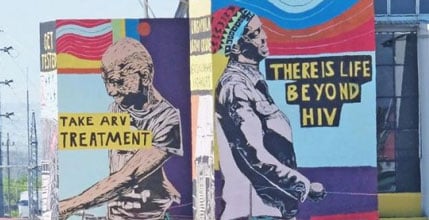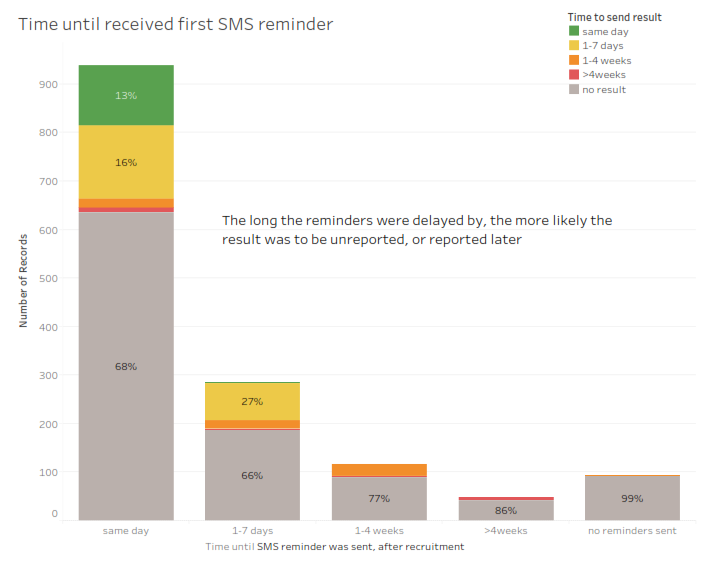Appointment reminders and innovative SMS-based interventions
Médecins Sans Frontières (Doctors Without Borders) is an international medical humanitarian organization that provides medical assistance to people affected by conflict, epidemics, disasters, or exclusion from healthcare.
Since 2015, MSF's Khayelitsha project near Cape Town, South Africa, has used Telerivet to improve healthcare delivery in vulnerable communities. MSF's Khayelitsha project develops innovative interventions to fight HIV and drug-resistant tuberculosis, and aims to advance local, national, regional and international policies on treatment for these diseases.
MSF regularly uses Telerivet to schedule and send SMS appointment reminders to high-risk populations. In addition, MSF also uses Telerivet to deploy innovative SMS-based interventions, such as HIV self-test reporting and substance use self-screening.
After trying other SMS platforms, MSF chose Telerivet for its seamless integration with their reverse-billed SMS shortcode in South Africa, its easy-to-use user interface that lets MSF easily export and monitor all information for their contacts, and its cloud platform that avoids the need for MSF to run their own servers. Because the platform is used by fieldworkers with various levels of computer literacy, it was important that the platform was simple, intuitive, and had the appropriate safeguards to customize the access of different users.

Photo by Rowan Pybus/MSF
One of MSF's most successful projects with Telerivet involves sending reminder SMS messages to patients conducting self-testing for HIV. Despite its benefits, some people have reservations about potential negative consequences of HIV self-testing. If a person tests positive for HIV while not in the presence of a counselor, they might not subsequently seek care to start their antiretroviral treatment. However, MSF has found that SMS campaigns using Telerivet have increased the completion rate of self-testing.
MSF distributes self-test kits at community outreach events, and asks participants to report back by sending a SMS message to MSF's reverse-billed shortcode, which ensures that participants will not be charged for sending an SMS. Fieldworkers add participants directly onto the Telerivet platform using tablets, which trigger a confirmation SMS to ensure that each participant had given the correct phone number. Follow up reminder messages every two days encourage participants to complete testing and check in. Nearly 1500 participants were recruited during the pilot, of which 33% reported completion of the self-test.
Compared to other MSF programs to ensure reporting of testing and treatment, reverse-billed SMS interactions with participants has produced much higher response rates than app-based systems, paper-based referral cards, or phone calls. MSF found that the sooner the participants received an SMS, the more likely they were to report a result.

